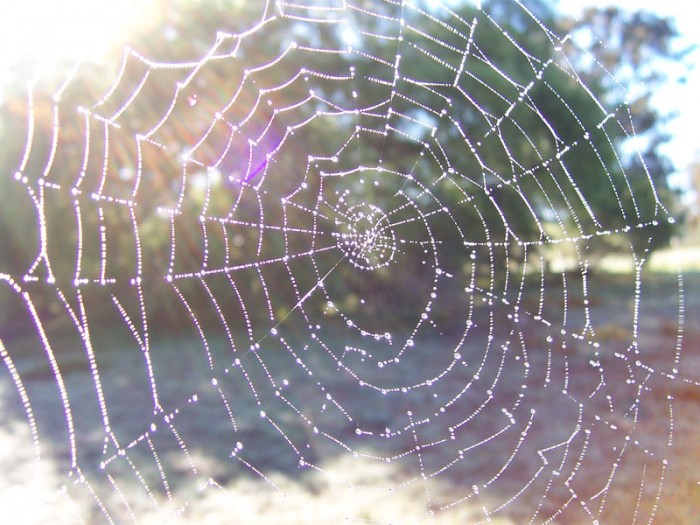Some time ago when Deb went to run a bath she found a spider in the tub.
At that moment she was presented with a choice: flush the spider down the drain or take the time to get it out (bearing in mind that Deb is not very fond of spiders!).
She also realized that whichever choice she made was totally dependent on her frame of mind. If she was in a bad mood, depressed or angry then she’d be most likely to wash the spider away; if she was feeling happy, calm, and at peace with herself, then she would undoubtedly help it out.
In other words, when we’re upset or angry then all we want to do is hurt someone or something else (like a spider), as our pain gets projected onto others or blamed onto everything around us: “It’s your fault I’m unhappy!” But when we’re happy or in a good mood then it’s virtually impossible for us to hurt or cause harm to another.
Think back to times when you got angry or upset about something and recall how your behavior was. Did you lash out or shout at someone, especially someone who really hadn’t done anything worth shouting at (like a spider)? And think about times you felt good and how more tolerant and loving you were, even willing to rescue a spider.
Yet governments around the world believe that war, violence, even genocide, can result in peace, without realizing that if there’s no peace inside, then it’ll never be possible to have peace outside.
Peace is more than just a thought; it’s who we truly are inside: a peaceful attitude is a reflection of our deepest self. So when we see the horror of what is happening in Gaza, Siberia, Ukraine, Russia, Missouri, to name just a few, we see leaders who are fearful, self-centered and out of touch with their inner truth.
The main culprit in all of this is the egocentric nature of the mind: self-centeredness is the distraction, the constant focus on ourselves as being right, which makes all others wrong. We look outside for satisfaction as we think that peace and happiness will come that way. Yet peace it is an inside job.
How do we deal with this? How can we claim our dignity, humanity and humility, both as individuals and as a human race? The sanest way to find and be at peace is by just stopping, being quiet and making friends with ourselves through meditation.
Only meditation has the power to lift us out of the quicksand of the mind, or out of misunderstanding and suffering. Through meditation we find our freedom from reactive, rash and self-serving behavior and develop more compassionate understanding, which is vital to our development and survival as a human race.
“Meditation is calming the reptilian brain,” writes Matthew Fox in Be The Change. “We have all got three brains in us: One is a reptilian brain, which is about 420 million years old, our mammal brain is half that old, and our most recent one is the intellectual creative brain. The reptilian brain is very dominant; it runs our respiratory and sexual systems; it is action and reaction.
We have to calm this reptilian brain so that the mammal brain, which is the brain of compassion and is here to bring kindness and kinship and bonding, can function. I mean, reptiles do not make good lovers; that is not their thing. Meditation allows us to treat the reptilian brain well: ‘Nice crocodile, nice crocodile.’ When we calm the crocodile, then the mammal brain can assert itself. Meditation is a survival mechanism for us all to calm our reptilian brain.”
Meditation is about making friends with ourselves, just as we are. When we’re at peace with ourselves then we’ll be at peace with our world. That’s one less person suffering and one less person causing suffering to others.
Love elephant and want to go steady?
Sign up for our (curated) daily and weekly newsletters!
Editor: Travis May
Photo: Wiki Commons







Read 0 comments and reply